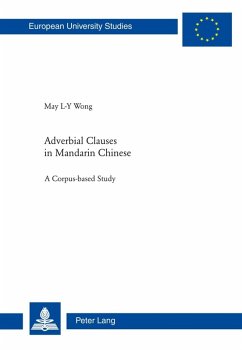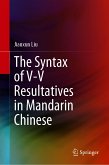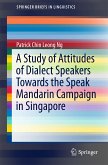What are adverbial clauses in Chinese? Do they all have subjects as their counterparts do in English? How do the semantic domains of adverbial clauses interact with the distribution of subjects? How do Chinese corpora help us explore these intriguing questions?
The aim of this study is to demonstrate the usefulness of corpus linguistics as a methodology in grammar studies. A problem-oriented tagging approach has been used to enable the exploration of adverbial clauses in the corpus and to identify eleven semantically based classes of adverbial clauses. While it is a well-known fact that Chinese adverbial clauses (CACs) are overtly marked by a subordinating conjunction, their subjects can be left unexpressed and recovered in the prior discourse. By analysing naturally occurring spoken and written samples from various corpora, the author examines this intriguing phenomenon of overt and non-overt subjects in adverbial clauses.
The aim of this study is to demonstrate the usefulness of corpus linguistics as a methodology in grammar studies. A problem-oriented tagging approach has been used to enable the exploration of adverbial clauses in the corpus and to identify eleven semantically based classes of adverbial clauses. While it is a well-known fact that Chinese adverbial clauses (CACs) are overtly marked by a subordinating conjunction, their subjects can be left unexpressed and recovered in the prior discourse. By analysing naturally occurring spoken and written samples from various corpora, the author examines this intriguing phenomenon of overt and non-overt subjects in adverbial clauses.
Dieser Download kann aus rechtlichen Gründen nur mit Rechnungsadresse in A, B, BG, CY, CZ, D, DK, EW, E, FIN, F, GR, HR, H, IRL, I, LT, L, LR, M, NL, PL, P, R, S, SLO, SK ausgeliefert werden.



